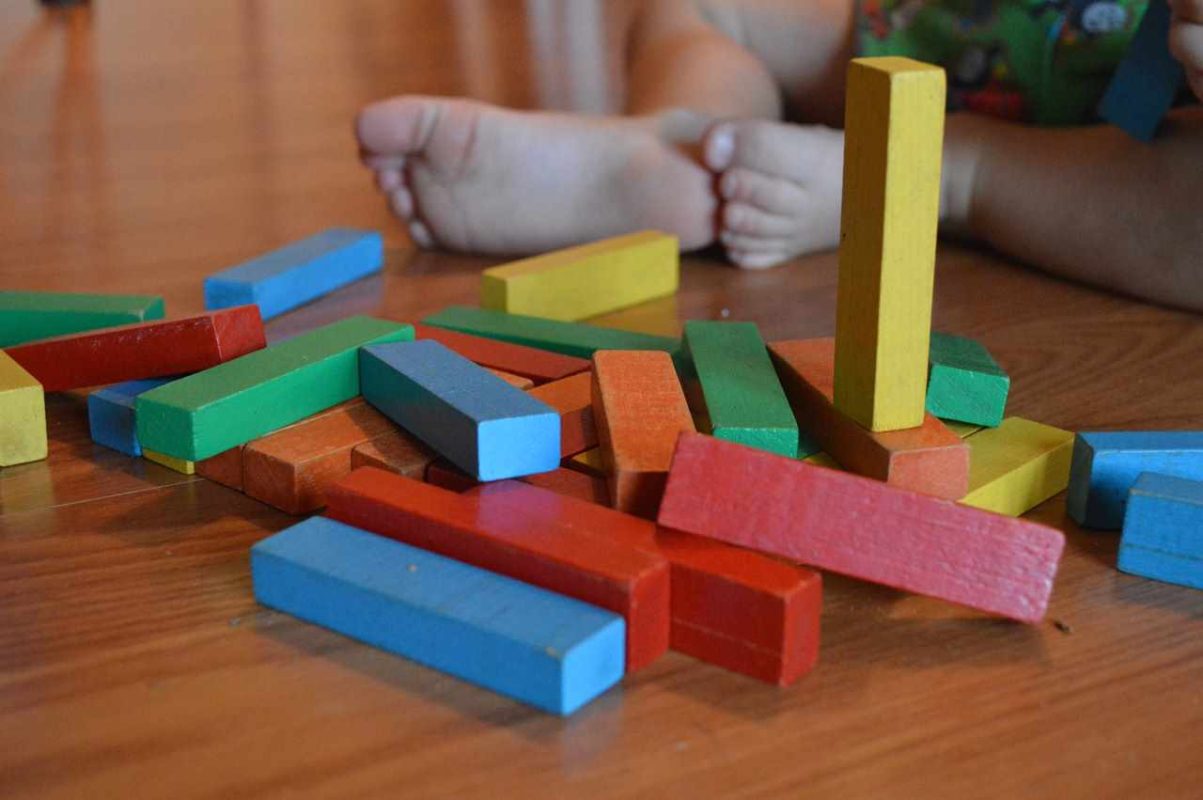Montessori education
Mastering Montessori Parenting Methods: A Comprehensive Guide to Raising Independent Kids
Table of Contents
I. Introduction
Montessori parenting has become increasingly popular in recent years for its child-centered and holistic approach to raising confident and independent kids. The Montessori method was developed over 100 years ago by Dr. Maria Montessori and places great emphasis on fostering children’s natural curiosity and innate desire to learn.
This comprehensive guide will provide an in-depth look at Montessori principles and how parents can integrate them into daily family life. We will cover key topics like creating Montessori-friendly spaces, encouraging independence, practical life skills activities, and benefits for different age groups. You’ll gain actionable tips for cultivating your child’s growth mindset and building important life skills through Montessori parenting techniques. Let’s begin unraveling the secrets to this transformative approach!
II. Understanding Montessori Parenting
Montessori parenting originates from the educational philosophy of Maria Montessori, an Italian physician and educator in the early 1900s. She emphasized child-centered and hands-on learning, with children taking an active role in their education.
The core principles of Montessori parenting include:
- Respect for a child’s unique developmental needs and interests
- Cultivating independence and self-discipline
- Fostering a love of learning through exploration
- Using developmentally appropriate activities and Montessori materials
- Creating orderly, stimulating environments tailored to the child
- The importance of practical life skills and hands-on learning
- Giving children freedom of choice within clear boundaries
- Guiding and observing rather than direct teaching
In many ways, Montessori parenting takes a different approach compared to more traditional parenting methods:
| Montessori Parenting | Traditional Parenting |
|---|---|
| Child-led learning with guidance | Adult-driven teaching |
| Self-correcting materials and activities | Frequent criticism and correction from parents |
| Intrinsic motivation is encouraged | External rewards and praise |
| Independence is fostered | Greater dependence on parents |
| Deep engagement in tasks | Jumping between activities quickly |
The priority is nurturing the child’s innate passion to learn and discover the world independently. Next, let’s explore some key components for success.

III. Key Components of Montessori Parenting
Montessori parenting relies on specific techniques and environmental factors. Here are some of the most essential elements:
A. Creating a Montessori-Friendly Environment
- Child-sized, minimalist furniture to foster independence
- Low, open shelving so children can access materials
- Orderly organization of toys and activities
- Materials are displayed aesthetically to intrigue children
- Incorporation of neutral colors and natural elements
- Uncluttered spaces and minimal visual distractions
- Hands-on learning resources like puzzles, books, sensory bins
- Areas for practical life activities like cleaning and cooking
A well-designed Montessori environment facilitates autonomous learning and development.
B. Fostering Independence
- Allowing children to choose activities based on their interests
- Giving limited, structured choices rather than open-ended options
- Being an observer and gentle guide rather than “teacher”
- Providing child-sized cleaning tools to care for their space
- Having low shelves so children can access materials independently
- Refraining from unnecessary help; allowing children time to problem-solve
The goal is for children to become self-sufficient and confident in their abilities.
C. Practical Life Activities
- Food preparation – mixing, pouring, cutting soft foods
- Care of self – hand washing, dressing themselves
- Care of environment – dusting, sweeping, washing dishes
- Grace and courtesy – greeting guests, proper mealtime etiquette
- Plant care and gardening
- Sewing, polishing, sorting tasks
These purposeful activities build concentration, coordination, independence, and responsibility.
IV. Montessori Activities for Different Age Groups
Montessori activities are tailored to the developmental needs of each stage:
A. Infants and Toddlers
- Mobiles and grasp toys to develop hand-eye coordination
- Clear containers for sorting by shape, color, size
- Sandpaper letters and numbers for sensory exploration
- Nesting cups, stacking rings, and simple puzzles
- Board books, picture cards, and naming everyday objects
- Transferring pom poms with tongs or tweezers to build fine motor skills
The priority is sensory development and building physical coordination.
B. Preschoolers
- Intro to early literacy with sandpaper letters and phonics
- Object matching games and nature specimen sorting
- Practical life activities like sweeping, sewing, pouring
- Math materials like Spindle Boxes, beads for counting
- Botany cabinet for learning plant anatomy
- Globes, puzzles, timeline of life and culture
- Language enrichment through books, songs, and oral stories
Key concepts in language, math, culture, and practical knowledge are introduced.
C. Elementary School Age
- Advanced math like fractions and decimals
- Hands-on geometry materials
- Timelines of historical events, maps, flags of the world
- Classifying animals, rocks, plants in nature studies
- Practical skills like cooking, carpentry, gardening
- Curriculum customized to child’s interests
- Research projects based on the child’s unique passions
The focus shifts to developing interests and expanding on foundational knowledge.

V. Integrating Montessori into Daily Parenting
Bringing Montessori home requires patience, creativity, and commitment:
- Start small – pick 1 or 2 principles to focus on at first
- Schedule regular Practical Life activities from toddler years up
- Observe your child closely to see what captures their interest
- Rotate a selection of developmentally appropriate toys and materials
- Offer structured choices to foster independence
- Keep instructions brief; let your child explore materials freely
- Don’t over-correct; allow mistakes as learning experiences
- Follow the child, don’t push activities they don’t enjoy
- Find support through parenting groups and Montessori coaches
Make Montessori a lifestyle rather than a rigid system. Pay attention to your child’s ever-evolving needs and adjust accordingly.
VI. Benefits of Montessori Parenting
Research shows Montessori education delivers powerful benefits:
- Enhanced cognitive functioning – Montessori kids show better executive functioning, focus, and problem-solving capabilities.
- Growth mindset – By letting children work through challenges, they develop persistence and resilience.
- Social competence – The mixed age classrooms facilitate empathy, leadership, and conflict resolution skills.
- Love of learning – The student-directed approach cultivates curiosity and passion for knowledge.
- Confidence and independence – The hands-on method and freedom foster incredibly capable children.
The well-rounded skill development is truly unmatched.
VII. Common Misconceptions
Despite proven advantages, some misconceptions still persist:
Myth: Montessori kids are free to do whatever they want.
Fact: Montessori children have clearly defined limits and expectations. Freedom is given within structured boundaries.
Myth: It’s an elitist, expensive method.
Fact: Public Montessori schools provide affordable access to all families. The materials can also be incorporated in creative, low-cost ways.
Myth: Montessori parenting is too rigid and restrictive.
Fact: The method is quite flexible and aims to respond to each child’s needs. It can be combined with many other parenting styles.
Myth: Montessori is outdated and not based on current child development research.
Fact: Montessori’s discoveries aligned incredibly well with today’s knowledge of child psychology and learning. The principles are timeless.
With an open mind, most parents can find great value in Montessori techniques.
VIII. Tips for Successful Implementation
- Pick your battles – Don’t overhaul everything at once. Introduce new concepts gradually.
- Add tools slowly – Start with 5-10 accessible Montessori items then build up the environment over time.
- Observe the child’s interests – Note activities and subjects they are drawn to and customize their space accordingly.
- Collaborate – Ensure family members are aligned on household principles and rules.
- Persist through challenges – It takes time and consistency before seeing results. Don’t give up!
- Find Montessori communities – Local parent groups and online forums provide invaluable support and ideas.
Take things step-by-step and celebrate small wins!

IX. Conclusion
The Montessori method provides an empowering approach to cultivating independent, creative, and empathetic children equipped with a lifelong love of learning. By understanding the core principles and how to apply them at home, parents can foster development across all domains – cognitive, physical, social, and emotional.
While integrating Montessori techniques requires commitment and consistency, the payoff is immense. Children gain exceptional self-discipline, resilience, confidence, and other skills needed to excel in school and beyond. Make the lifestyle investments early on, and your child will reap rewards for life. Although the initial steps feel challenging at times.
FAQs
- What is Montessori parenting?
Montessori parenting is an approach based on the educational philosophy of Dr. Maria Montessori that emphasizes hands-on learning, independence, respect for a child’s natural development, and preparing nurturing yet structured environments.
- How does Montessori parenting promote independence?
Montessori parenting promotes independence by allowing children to choose activities freely, take on responsibilities, problem solve on their own, and take an active role in their learning. The environment is designed to foster self-sufficiency.
- Are there specific activities in Montessori parenting?
Yes, Montessori parenting incorporates many hands-on activities termed “practical life exercises” like food preparation, caring for the environment, arts and crafts. Activities are age-appropriate and encourage real-world skills.
- What age is suitable for Montessori parenting methods?
Montessori principles can be applied to children as young as infants all the way through the elementary school years. Activities and materials are tailored to fit each developmental stage.
- Can Montessori parenting be combined with other parenting styles?
Absolutely. Many elements of Montessori align well with attachment parenting, gentle parenting, and other styles. Parents can blend methods based on their child’s needs. The priority is responding to the individual child.
References
https://www.guidepostmontessori.com/blog/montessori-for-babies-complete-beginners-guide
https://montoddler.com/blogs/guides/the-ultimate-montessori-parenting-guide
https://www.amazon.com/Montessori-Mastery-Environment-Montessori-inspired-Strategies/dp/B0CNZPJQ79
https://www.barnesandnoble.com/w/mastering-montessori-freddie-vaughn/1143889381
https://web.mei.edu/IDtrack?FilesData=Montessori_At_Home_Guide_Gentle_Parenting_Techniq.pdf&docid=F41w445

